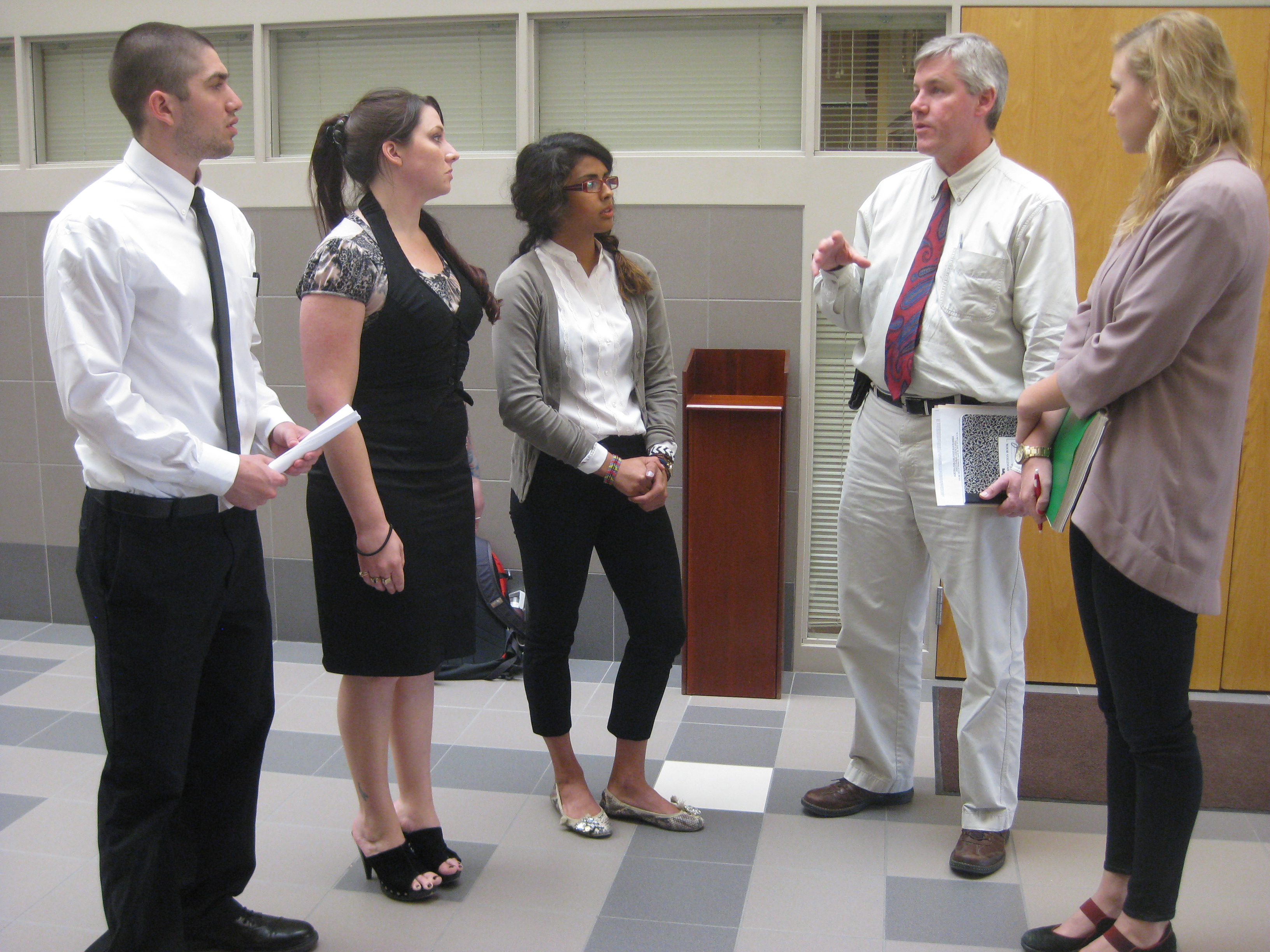
The new Pinnacle Bank Arena should aim for diverting 75 percent of its waste stream from landfills by using recycling and in-house composting, Environmental Studies students recommended to the West Haymarket Joint Public Agency at its meeting in City Council chambers on April 20.
Depending on what arrangements arena officials make with private firms or organizations, they could expect to save $20,000 for every 1,000 tons of material that is recycled rather than sent to a landfill, the team reported.
The students from Dave Gosselin’s class, Environmental Engagement and the Community – Jesy Hansen, Kiana Mathew, Tom Batter, Neil Tabor and Chevelle Schreiner – said the keys to success are funding, public awareness, and clearly labeled bins that are at least as prominent and frequently placed as waste baskets.
“Working on this project was valuable on multiple levels," Batter said. "First off, it allowed me to exercise knowledge and skills I have gained while studying Environmental Science here at UNL. Secondly, I was able to get involved in my community and share ideas and suggestions to establish a successful and responsible recycling and composting program at the Haymarket Arena.
"Hopefully the decisionmakers will apply what we presented them with in a way that myself, this team, and our peers in the Environmental Studies Program can be proud of,” Batter said.
In their presentation to officials, the students gave an overview of sustainability strategies at other arenas in the Big Ten Conference and around the country, and listed several viable approaches. Ohio State places “zero waste stations” around the stadium for composting and recycling. At Penn State, student volunteers help tailgaters recycle before games. At Michigan, volunteers help with post-game recycling in the stadium.
Outside the Big Ten, the Rose Garden Arena in Portland was the first sports arena to achieve LEED Gold certification for sustainable construction, and includes an aggressive composting and recycling program. It has gone from 38 percent waste diversion in 2007 to 90 percent in 2011. It uses well-designed recycling containers constructed by local businesses.
Other useful sustainability measures stadiums have implemented include occupancy sensors to switch lights on and off, dual-flush toilets, use of runoff and gray water, and volunteers to collect and sort recyclables, the students reported. Vendors can help too, in a variety of ways, such as recycling grease and using Energy-Star appliances.
The team showed in their survey findings that students generally support recycling and composting, and that 83.7 percent of their fellow students would be willing to pay from 25 to 75 cents more for concessions to ensure that the container could be recycled.
When the students were finished, Tim Clare, a University of Nebraska regent and representative on the JPA, asked, “How much will it cost?”
Hansen told him would depend on whether the arena recycles in-house or involves a contractor or another organization, and that the students would come up with figures for each scenario.
Mayor Chris Beutler thanked the students for their efforts.
Gosselin said one of the benefits of a real-world, applied project is that it puts students into a situation where they have to deal with a wide range of variables, in terms of people, not only in their groups but among their clients.
- Kelly Helm Smith